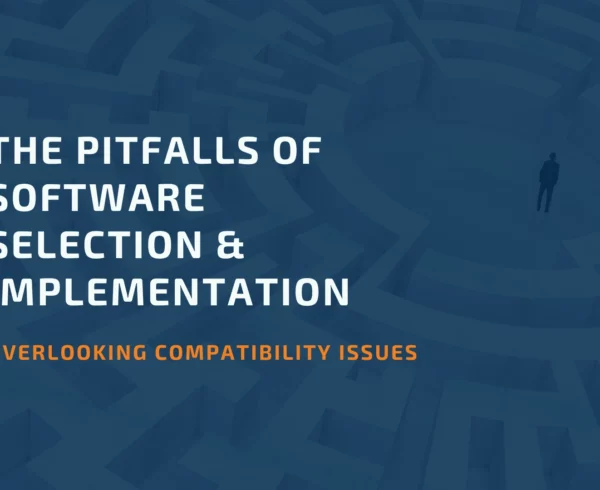
Software selection is critical for businesses looking to implement new technology solutions to improve their operations, streamline workflows, and achieve strategic goals. While organizations often focus on the upfront costs of purchasing software, many hidden costs can catch businesses off guard if not carefully considered during the budgeting process.
This blog will explore some common pitfalls in budgeting for software selection and provide solutions to avoid them.
Underestimating Implementation Costs
One of the biggest pitfalls in budgeting for software selection is underestimating the implementation costs. Implementation costs include software installation, configuration, customization, data migration, and staff training. These costs can vary significantly depending on the software’s complexity, the organization’s size, and the level of customization required.
Failure to accurately estimate these costs can result in unexpected expenses and delays in the implementation process.
To avoid this pitfall, it is crucial to thoroughly assess the implementation requirements for the software being considered. Doing so may involve:
- Consulting with the software vendor.
- Engaging an experienced implementation team, like the BHC Group.
- Factoring in potential customization and data migration costs.
It’s critical to include these costs in the budget upfront to avoid surprises down the road.
Overlooking Maintenance and Support Costs
Another common pitfall is overlooking the software’s ongoing maintenance and support costs. Many software solutions require regular updates, patches, and technical support to keep running smoothly and securely. These costs can add up over time and impact the overall budget for the software selection.
To avoid this pitfall, it’s important to carefully review the maintenance and support requirements of the software during the selection process, such as understanding the vendor’s maintenance and support policies, estimating the costs associated with ongoing updates and technical support, and including these costs in the budget.
Ignoring Integration Costs
Integrating new software with existing systems and processes can often incur additional costs that are often overlooked. Integration costs can be custom development, data mapping, API integration, and testing. Failure to account for these costs can result in delays and disruptions in the implementation process.
To avoid this pitfall, it’s important to thoroughly assess the integration requirements of the new software with existing systems and processes, such as consulting with IT experts, understanding the complexity of the integration process, and factoring in potential costs associated with custom development or data mapping.
Not Factoring in Training and Change Management Costs
Training and change management are crucial aspects of any software implementation process. Employees need to be trained on how to use the new software effectively. Change management efforts are required to ensure smooth adoption and integration of the software into daily operations. However, these costs are often overlooked in the budgeting process.
To avoid this pitfall, it’s essential to include training and change management costs in the budget for software selection. This means estimating the costs associated with training materials, training sessions, and change management initiatives such as communication plans, user support, and user adoption programs.
Disregarding Future Upgrades and Expansion Costs
Software solutions are not static; they evolve over time with updates, upgrades, and expansion options. Disregarding these potential costs in the budgeting process can result in unexpected expenses in the future.
To avoid this pitfall, it’s important to consider future upgrades and expansion costs when budgeting for software selection, understanding the vendor’s upgrade policies, estimating the costs associated with future upgrades, and factoring in potential expansion costs such as additional licenses or license modules are very necessary.
Conclusion
To ensure a successful software selection process, you need a reliable partner who can provide expert guidance and support throughout the budgeting process.
That’s where BHC Group Consultants come in. With our extensive knowledge and expertise in software selection and budgeting, we can be your trusted advisor in navigating the complexities of budgeting for software. We have a proven track record of assisting organizations in making informed decisions about software investments, saving you time, money, and resources while maximizing the value of your software investment.
If you want to learn more about software selection and implementation pitfalls, join us for a webinar hosted by the BHC Group on May 17th. Our experts will provide insights and best practices to help you navigate the software selection and implementation process and avoid common pitfalls.
Don’t miss this opportunity to learn from industry experts and improve the success of your software projects. Register now to secure your spot!





